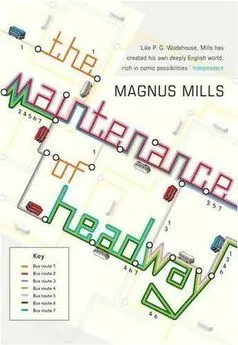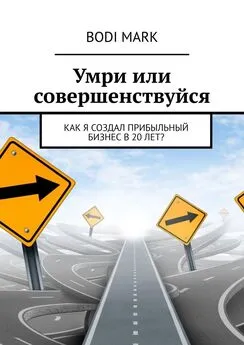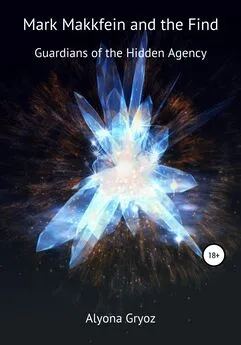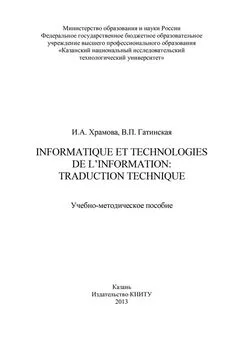Mark Mills - The Information Officer
- Название:The Information Officer
- Автор:
- Жанр:
- Издательство:неизвестно
- Год:неизвестен
- ISBN:нет данных
- Рейтинг:
- Избранное:Добавить в избранное
-
Отзывы:
-
Ваша оценка:
Mark Mills - The Information Officer краткое содержание
The Information Officer - читать онлайн бесплатно ознакомительный отрывок
Интервал:
Закладка:
Constanze never once made mention of his father’s death, almost as if she knew that it had left no gaping hole in his life. Once, when Lutz was skimming stones at the water’s edge and he was alone with Constanze on the grassy bank of the lake, she claimed that she could read his thoughts, which he interpreted as meaning that she had felt his eyes on her. He wasn’t embarrassed. Embarrassment was an emotion he no longer experienced. Besides, she was right. It was hard to ignore her, parading about in her costume with her long pale limbs and her high firm breasts. He asked her if she had ever kissed a boy. Of course not, came her indignant reply; she had only ever kissed men. The intended snub fell on deaf ears, and her eyes almost popped out of her head when he told her about Mrs. Beckett. He left out the stuff about blackmailing her into bed, but told it pretty much as it had been. He also asked her not to say anything to Lutz. It was to be their secret.
The ploy worked. The secret festered away over the following days. Constanze was as puffed-up as ever, maybe more so, but he caught the conspiratorial looks she threw his way, and sometimes she brushed against him unnecessarily. Then came the urgent, whispered questions whenever they found themselves alone for a moment. Had he really done it with Mrs. Beckett? Was it really like he had said?
The evening before they were all due to leave Bad Reichenhall, she took him aside and suggested they meet up later after everyone was in bed. She billed it as a last walk to the Thumsee, a final farewell to their lake. Her excuse for not including Lutz in the expedition was that his bedroom adjoined that of his parents, and he was liable to give the game away if he joined them.
It was a warm, balmy night, and a crescent moon lit their path to the lake. They stripped off and swam to the big rock and back. Then they kissed in the shallows and her hand closed uncertainly around him. She gave a small squeal of pain as his hand returned the favor, fingers probing, delving. She released him immediately and made off out of the water, long and lean and ivory-white in the moonlight. He knew that his crude fumblings had killed the moment, but he was damned if he was going to take all the blame. After all, it was she who had lured him there with the promise of greater things.
She was too preoccupied with pulling on her clothes to see him coming. He grabbed her and spun her around and forced his tongue into her mouth. She resisted, of course, even when he told her that he would hurt her if she didn’t stop. Seizing her hair seemed the sensible thing to do, as it would leave no mark. It certainly subdued her enough for him to have his way with her, right there on the grassy rise beside the lake. And while he did it, he told her why he was doing it. After a month of her stuck-up ways, he was not lost for words. The more she tried to twist free of him, the more pleasure he derived from her struggles, a dark and deeply satisfying pleasure he had not felt with Mrs. Beckett. And when it was over, he didn’t thank her and promise his eternal silence, as he had done with Mrs. Beckett. He threatened her with a fate far worse than the one she’d just endured if she ever breathed a word of it.
While they were getting dressed, he took a more reasoned tack, pointing out that it would be her word against his. Even if she persuaded people of the truth, her reputation would still be in tatters. “I understand,” she said. And she seemed to.
The following morning she was at breakfast at eight o’clock sharp, composed, if somewhat more subdued than usual. This was put down to the prospect of returning to Bremen after a glorious month in the Alps.
She had gone on to marry a wealthy corn merchant. He knew this because over the years he had asked after her, and Lutz had filled him in on the dreary details of her life: another child, a new holiday house by the sea, her charity work for the unemployed. Unsurprisingly, the war had restricted these updates, but he still thought of her with something approaching affection. She might not have been the very first, but it was she who had triggered the first stirrings of life in him, she who had set him on the road. He had taken wrong turns, dangerous deviations that had almost proved to be his undoing, but he was wiser now—more cautious, more patient, and far better at covering his tracks.
DAY FOUR

MAX HAD BEEN HOPELESSLY AWAKE FOR HOURS, WRESTLING with the sheet, when the building wail of the siren cut through his thoughts. The windows were shuttered, but a pale dawn light leaked into the bedroom through the crack in the wall. He’d tracked the progress of this jagged fissure over the past month with a mixture of curiosity and alarm. It had set off on its journey from the floor beside the chest of drawers, traveling in fits and starts on a diagonal path toward the ceiling, widening to a hand’s width as it went. At a certain moment it had disappeared behind the only picture in the room—a naïve watercolor of some unidentifiable fruit in a bowl—only to reemerge a week or so later from behind the shell and coral frame and carry on its way.
There was no stopping it. What it would do when it reached the ceiling was anyone’s guess; structural engineering had never been his forte at college. Diagonal was bad, though; he knew that much. So was the fact that the doors in the apartment no longer closed properly.
His neighbors had long since fled, part of the great exodus that had all but emptied Valetta, Floriana, and the Three Cities, stuffing the surrounding towns and villages to bursting point. His refusal to budge had both puzzled and pleased them; at least someone was left to deter looters. But there was nothing noble and defiant in his decision to remain. From his bedroom window he had a direct view of Mitzi and Lionel’s flat in Valetta, and that kind of proximity was not something he’d been ready to give up. Well, not until now.
Theirs was a third-floor flat, large and light, overlooking Hastings Gardens. Max knew it well. He still had a key to the entrance door downstairs. The key was tucked away in the drawer of his bedside table, redundant for more than two months, ever since Mitzi’s abrupt termination of their relationship.
It had been hard to fault her logic.
“Everyone reaches for a crutch in war. That’s what we’ve done. We’re like two cripples leaning on each other. It can’t continue, Max. I’m a married woman. It has to stop.”
He knew her well enough by then not to argue. She rarely spoke in haste. She had thought the matter through and drawn her conclusion. Nothing he said or did would dissuade her.
“Okay.”
“I knew you’d understand.”
“I didn’t say I understood.”
They had been naked at the time. Five minutes later, he was fully dressed and heading home on foot, sticking to the shadows, as he always did. That’s when he remembered the key in his hip pocket. The black void beyond the bastion wall called out for it, but he kept it clutched tightly in his fist. He had always prided himself on his ability to cope with rejection, and he was happy to be able to ascribe the tears pricking his eyes to the dust carried on the stiff wind whipping through the streets.
His attitude had hardened considerably over the following days and weeks, especially when it became clear there was to be no change of heart on Mitzi’s part. Numb resignation slowly gave way to indignation, then to morose self-absorption.
Tellingly, Lilian was the first to note the change in him.
“What’s wrong?” she had asked as they were winding up one of their weekly meetings. “You’re not yourself.”
“Who of us is?”
She cocked her head at him as if to say, You’ll have to do better than that .
“I mean it. Life here … it’s like another incarnation. I can’t remember who I was.”
“So tell me.”
“What?”
“Tell me. It might help you remember.”
He spoke mostly about architecture, the curious and inexplicable passion that had nibbled at the fringes of his consciousness during childhood, and that he had finally acknowledged, just in time, a week shy of taking up the post he’d been offered by the Foreign Office while still a student at Oxford.
His university friends, taking the first teetering steps in their respective careers, were baffled by his decision to start over from scratch, dismissing it as the whimsy of someone who was an eternal student at heart, which probably wasn’t so far from the truth. His father, on the other hand, had embraced the idea. He’d even embraced Max—something he hadn’t done in years—congratulating him on his courage and offering to cover the cost of a small apartment in London for the duration of his studies.
His time at the Architectural Association had been a revelation, both thrilling and humbling after the dilettante posturing of Oxford, the endless round of dining clubs and debating societies. No one cared if he thought Ezra Pound or T. S. Eliot was the daddy of contemporary poetry. He felt stripped bare, naked, exhilarated. The work came first, their work, not someone else’s. He even learned to find beauty in the tedium of a technical drawing class, the utter silence of people doing rather than discussing. Yes, they talked about architecture—as he did now to Lilian—about its power to make the human spirit soar, and about the green shoots of the exciting new aesthetic pushing through the establishment soil. If he bored her, she didn’t show it.
That one conversation had marked a notable shift in their relationship. She might have been the instigator, but they both played their part in it. Almost imperceptibly, their weekly get-together became a twice-weekly get-together, and he found himself manufacturing further excuses to drop by the offices in Saint Paul’s Street whenever he was in town. The first time he invited her for a drink at the Union Club, it was on some doubtful professional pretext.
Perched on a chair in the ladies’ bar—amusingly nicknamed the snake pit, which didn’t amuse her—she told him the story of her father, a captain in the Yorkshire Light Infantry who had spent a year of his life on Malta, recuperating from injuries sustained in the Salonika campaign. Malta had catered to well over one hundred thousand sick and wounded during the Great War, and had come to be known as “the nurse of the Mediterranean.” Lilian’s mother, like so many other Maltese girls at the time, had been a volunteer nurse, and she’d lost her heart to the lanky Yorkshireman in her care, marrying him a few months before he was sent back to the front. George Flint wasn’t killed by a Bulgar bullet or bomb; he died from malaria in September 1918, a few days before the war in Salonika ended.
Her mother had never remarried, unable to square the concept with her faith, although it hadn’t stopped her from disappearing off to Italy a couple of years before the outbreak of war, on the arm of a visiting professor of archaeology from the University of Padua. This was the reason Lilian now lived with her aunt’s family in Mdina. The invitation to dinner there had followed a few weeks later.
With its walls and ramparts and sweeping views, Mdina reminded him of a number of hilltop towns he had visited in France with his father before the war, and while it lacked a cathedral to match those of Laon or Vézelay, it more than made up for this in other ways. As the seat of the Maltese nobility, its streets and squares were lined with stately palaces, mostly built in a restrained baroque style. The same graceful architecture was evident in the churches, convents, and seminaries that accounted for almost all the other buildings in the compact citadel. The effect was ordered, aristocratic, ecclesiastical; and an ancient peace seemed to hang over the place, a silence broken every so often by the slap and scuff of leather sandals on stone as friars and nuns shuffled about their business.
Читать дальшеИнтервал:
Закладка:




![Джеймс Купер - Пионеры, или У истоков Саскуиханны [The Pioneers, or The sources of the Susquehannah]](/books/1066142/dzhejms-kuper-pionery-ili-u-istokov-saskuihanny-t.webp)




